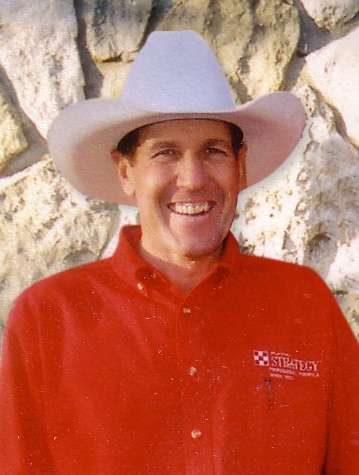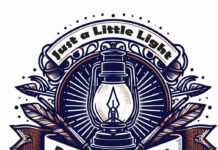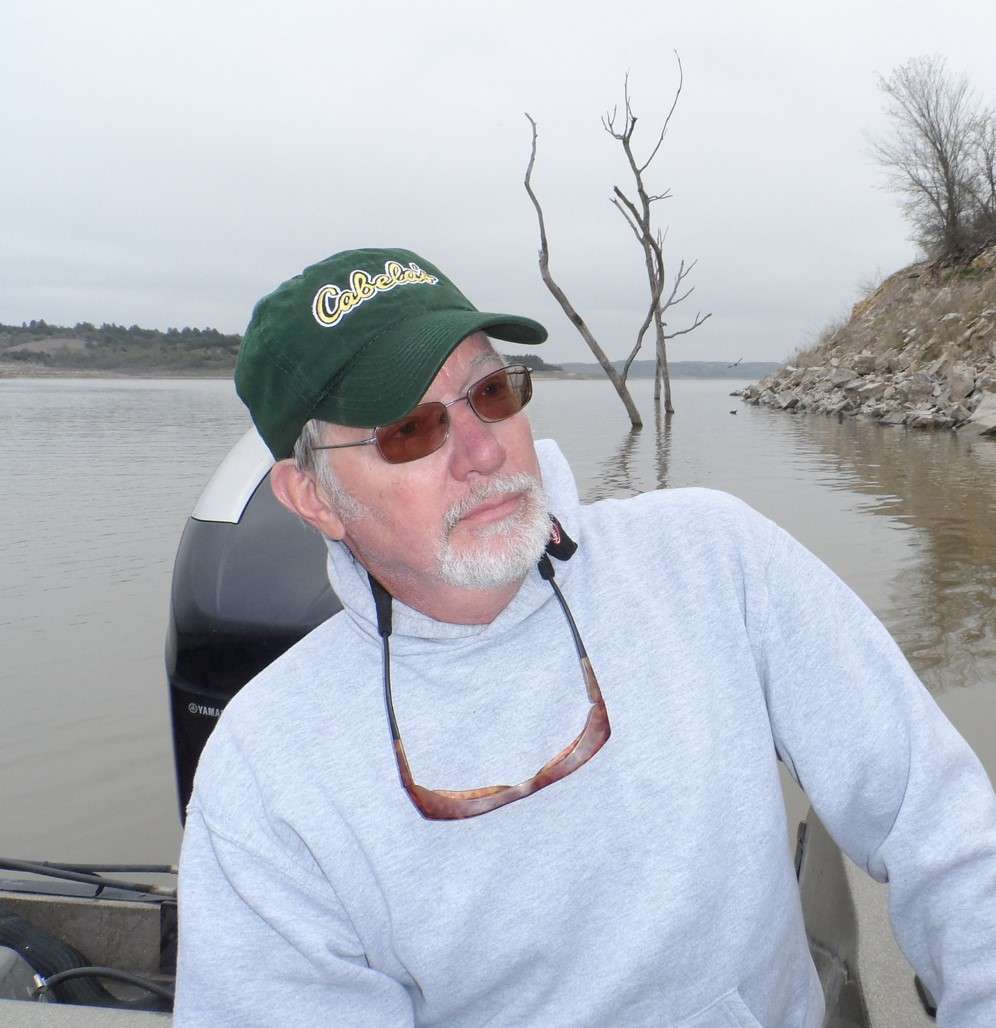“Horses are who we are and what we do. We’ve always had horses and our family and lives center around horses, the horse industry and horse people.”
That’s how Tara Mowry proudly described the Vince Mowry family of St. George including sons Cooper, Jacob, and Rylan.
Perhaps first and best recognized today as a farrier is Vince Mowry, serving horse owners throughout northeast Kansas.
Yet every member of the family is closely tied to working with horses and livestock at their Pottawatomie County farmstead.
“All I’ve known is horses,” Vince insisted. “I grew up horseback near Hoxie in Sheridan County helping Dad look after yearlings on wheat pasture and stalks.”
Competing in rodeos from Little Britches through high school, college, amateur and ranch competitions, Vince collected titles on all levels.
Still one of the accomplishments fond to Vince’s memory is the first horse he trained. “I started that mare as a two-year-old from scratch and really had her going great,” Vince said. “I had an offer to sell her as a four-year-old and finally gave in. Dad encouraged me to take the money and go on even though I didn’t want to.”
Confident in his heart of the young horse’s ability, Vince was pleased when two years later he saw her in professional rodeo competition. “I talked to the cowboy riding the mare, and he said she was the best he’d ever ridden. ‘Whoever started this mare did an excellent job.’ That really made me proud,” Vince remembered.
Looking to a future working with horses, Vince wanted to be a farrier.
“I was intrigued by Elden Boyington who did our shoeing when I was growing up,” Vince said. “I was always asking him questions and then attended a shoeing school. I started my own business to help pay my way through college.”
Vince had the desire to be a veterinarian specializing in equine health care.
“I took pre-vet courses at junior colleges in Colby and Dodge City before enrolling at Kansas State University,” Vince said. “My K-State animal science degree readied me for a livestock profession, even though vet school didn’t work out.”
With similar livestock interests, Tara (Poppe) grew up near Montezuma in Gray County.
“My family always had horses and I did ride horses but also showed cattle,” Tara said. “I was active in 4-H and was always interested in taking care of all the livestock alongside my Dad.”
Working at a local veterinary clinic during high school, Tara also envisioned her life’s profession as a veterinarian. “After graduation, I enrolled in pre-vet courses at K-State,” she said. “I then became burned out on school and decided to lay out a semester.”
Following relief from studies, Tara enrolled at Colby Community College before returning to KSU to complete an animal science degree in production management.
“Vince and I dated during college and were married in August 2004,” Tara said.
The couple had several job offers after college. But they decided that the Flint Hills was where they wanted to stay and raise a family.
“Vince already had a significant clientele built with his shoeing business,” Tara said. “I got promoted to office manager at the vet clinic, so we bought a place and stayed close.”
The operation is recognized for the Flying M brand on their horses’ hips. “We registered that brand after we were married. We wanted our own unique brand rather than our families’ brands,” Tara said.
“I put my farrier’s card in a dozen rural Manhattan mailboxes and got two responses,” Vince said. “It was a boost for the horseshoeing business that fortunately continued to grow.”
Working at the Lyons Angus Ranch for a time, Vince then became a welder for Travalong Trailers in Manhattan. “It worked well with my farrier trade sometimes helping increase my contacts with horse people,” he said.
“When our first son Cooper was born, I became a stay-at-home mom,” Tara said. “I was fortunate enough to be home for about 10 years while our other sons, Jacob and Rylan, came along.”
Farrier business and additional diverse professional abilities expanded such that Vince became fully self-employed supporting the growing family. Although Vince is first a professional farrier, his skills that all directly and indirectly relate to horses are most diverse.
“I ride some customer horses and train a few colts,” he said. “I also do cowboy daywork whenever there’s a call, especially when somebody needs a stray caught and with roundups.”
From experience gained working at Travalong Trailers, Vince is called upon regularly from a wide area to do trailer repairs. “I also custom-build fence and really can help ranchers with lots of repair work if they need assistance,” he said.
Similarly, Tara again went to work after the boys were all in school becoming general manager of Taussig Landscape.
“With my bookkeeping experience in veterinary clinics and appreciation for landscaping, it’s a perfect job,” she said. “Looking back to college days, now I think I should have majored in horticulture or accounting.”
Although not competing in rodeo much nowadays, Vince is called on to judge such events highlighted by officiating ranch rodeos.
“I’m Vince’s wife, but it’s true, there’s not much related to horses and ranches that Vince can’t do,” Tara credited.
Farrier work is sought from Vince by nearly 400 clients. “I work on more than 3,000 horses a year in at least 22 counties,” he said. “I put about 35,000 miles on the pickup annually.”
To be more efficient, the farrier sets his schedule to work in certain areas each day, “I was in the Eskridge community today and will be north of Wamego tomorrow,” Vince said. “I can usually work a couple dozen horses in a day; that’s trims and shoe sets.”
His daily record for trimming is 28 horses. The farrier has nailed on a dozen sets of shoes, that’s 48 new shoes, on horses in a day.
Of course, experience is the best training in any profession and perhaps even more important as a farrier.
“I have a forge and can make horseshoes to fit, but it’s more efficient to use keg shoes,” Vince said. “I’ve dealt with a wide range of feet issues and been able to make horses more sound with improved performance.
“I do recommend working with veterinarians when clients have horses with foot problems or lameness,” Vince continued. “However, I’ve found it interesting that sometimes veterinarians come to me for advice about horse feet and lameness issues.”
Being a farrier is much more than shaping a horseshoe and nailing it on. “Knowing how to handle the horses sometimes requires more ability than the farrier skills,” Tara inserted. “Vince’s background working with horses is an asset to handling the many different horses he’s called to trim and shoe.”
Vince quickly commented, “I really think the farriers’ schools should put more emphasis on horsemanship. They teach horse shoeing but usually don’t even talk about how to handle the horse being shod.”
All three of the Mowry boys are included in the family livestock work. “They have had cattle projects and have their own sets of chores to do,” Tara credited. “They all three ride horses, with Rylan and Cooper riding in local horse shows and doing quite well. Jacob doesn’t care for competition, but he’s a great supporter and eager to help the others.”
Keeping track of her four cowboys keeps Tara busy along with her fulltime profession.
“I do go trail riding with the family sometimes, but I really don’t ride that much,” she admitted. “I prefer to help where I’m needed and teach the boys more about horsemanship and showmanship.”
Loyal workers in their community and school district, Vince and Tara are also leaders in the BlackJack Saddle Club. “We want to do all we can to keep the family involved. The saddle club is a great learning experience for the boys,” Vince said.
Tara is also a leader for the Pottawatomie County 4-H Horse Project.
Their farmstead fits the horse-oriented family quite well. “We like having a little acreage to raise our family,” Tara said. “It gives the boys experiences some of their classmates don’t have.”
The Mowry family’s land operations in Sheridan County are now managed by Vince. “Since my parents have passed away, we rent the farm out, but still go there several times a year,” he said.
Days and years down the trail? “We may decide to expand our operations here in the Flint Hills, maybe develop a cowherd,” Tara said.
“With the toll on my body now, I don’t expect to be a farrier when I’m 70-years-old,” Vince said. “Whatever the future holds, horses will always be a part of our family. I expect it to continue into the next several generations like it has from Tara’s and my backgrounds.”
CUTLINES
“Horses are who we are and what we do. We’ve always had horses and our family and lives center around horses.” Vince and Tara Mowry and sons Cooper, Rylan, and Jacob. (Photo from Mowry family.)
The Mowry boys; Jacob on Sis, Rylan on Lakota, and Cooper on Tuffy. (Photo from Mowry family.)
Rylan Mowry rode Sis to collect awards at the Pottawatomie County 4-H Horse Show last year. They were the junior performance champion, junior speed champion and received the overall junior champion buckle. (Photo from Mowry family.)
Vince Mowry, St. George, is demanded as a farrier and for horse foot care throughout northeast Kansas. (Photo from Mowry family.)
An all-around horseman best describes Vince Mowry, St. George, a farrier, trainer, and ranch day worker who also builds pasture fence, does trailer repair work, and assists ranchers with about whatever needs done in the Flint Hills. (Photo from Mowry family.)





